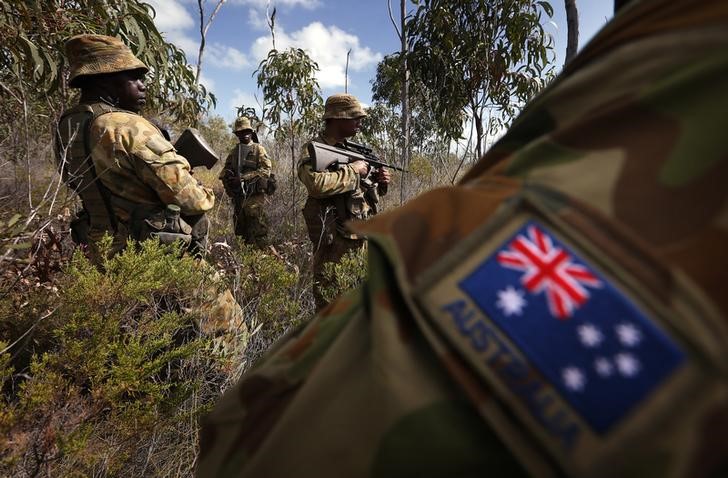* Pivotal World War One Battle of Beersheba commemorated
* Balfour Declaration issued two days later
* Israeli, Australian, New Zealand leaders attend memorial
* Australian horsemen re-enact cavalry attack against Turks
By Rami Amichay
BEERSHEBA, Israel, Oct 31 (Reuters) - An "Australian light horse brigade" of history enthusiasts rode through the Israeli desert town of Beersheba on Tuesday to commemorate the 100th anniversary of a World War One cavalry charge that helped reshape the Middle East.
The victory by the Australia and New Zealand Corps (ANZAC) in the Battle of Beersheba, a biblical town in what was Ottoman Palestine in 1917, broke a strategic Turkish defence line and led to the conquest of the Holy Land by British imperial forces.
Dozens of history buffs, including descendents of the soldiers of the 4th Brigade of the Australian Light Horse, the cavalry force that charged the Turkish positions, came to Beersheba to parade on horseback through the streets and stage a re-enactment.
Israeli Prime Minister Benjamin Netanyahu, at a memorial ceremony in the city also attended by his Australian counterpart, Malcolm Turnbull, and New Zealand Governor-General Patsy Redding, said the Oct. 31 battle was an important part of a history line that led to Israel's creation in 1948.
The victory in Beersheba was followed two days later by a British government endorsement of "the establishment in Palestine of a national home for the Jewish people".
Palestinians have long condemned the Balfour Declaration - named after Arthur Balfour, then the British foreign secretary - as a promise by Britain to hand over land that it did not own. Israelis celebrate it as one of the key moments in creating the modern state of Israel.
"Exactly 100 years ago, brave ANZAC soldiers liberated Beersheba for the sons and daughters of Abraham and opened the gateway for the Jewish people to re-enter the stage of history. The heroism of your fallen men will never be forgotten," Netanyahu said.
Hundreds of Turkish soldiers and 31 Australian troops were killed in the cavalry charge, part of a campaign to capture Beersheba and water resources in the town, whose Hebrew name refers to a well claimed by the Patriarch Abraham in Genesis.
"The Australian Light Horse were not meant to fight on horseback - they were mounted infantry, and they were to ride to the battle, dismount. One man would hold the horses, three others would go in and fight like infantry," Turnbull said at the memorial ceremony.
But as water was short, they had no choice but to push for a quick victory, he said, describing the attack as "the last great cavalry charge in history". (Writing by Jeffrey Heller; Editing by Robin Pomeroy)
